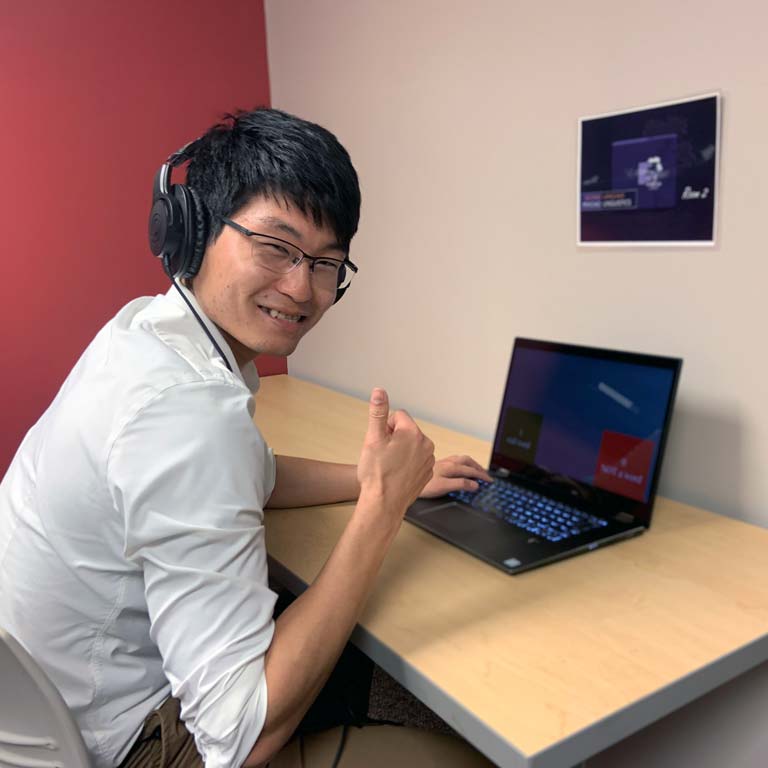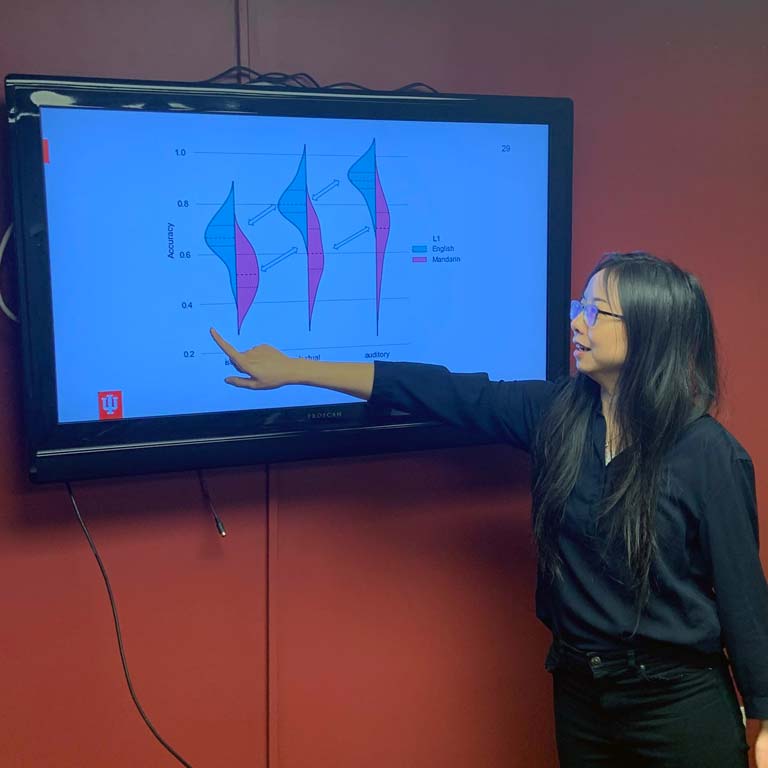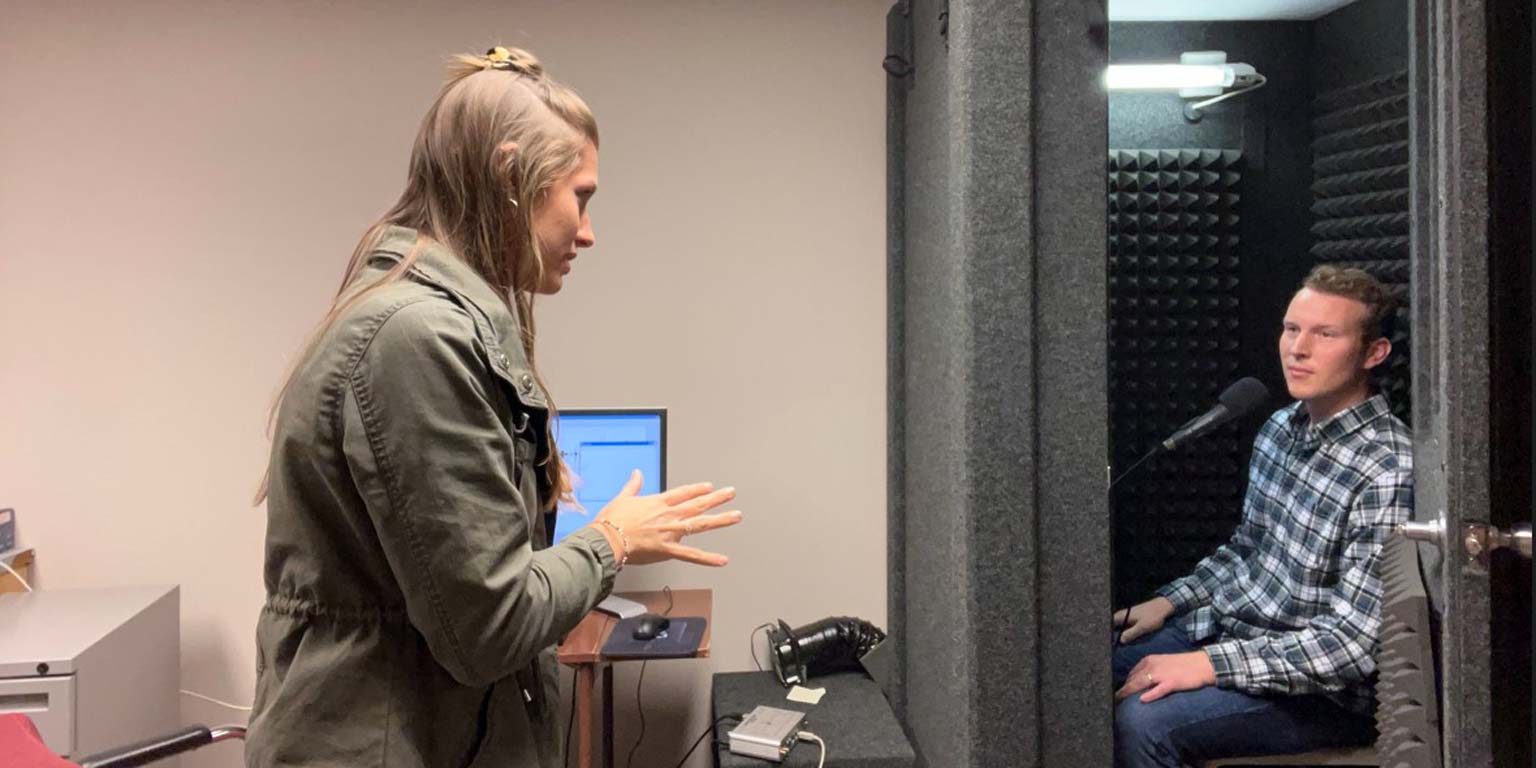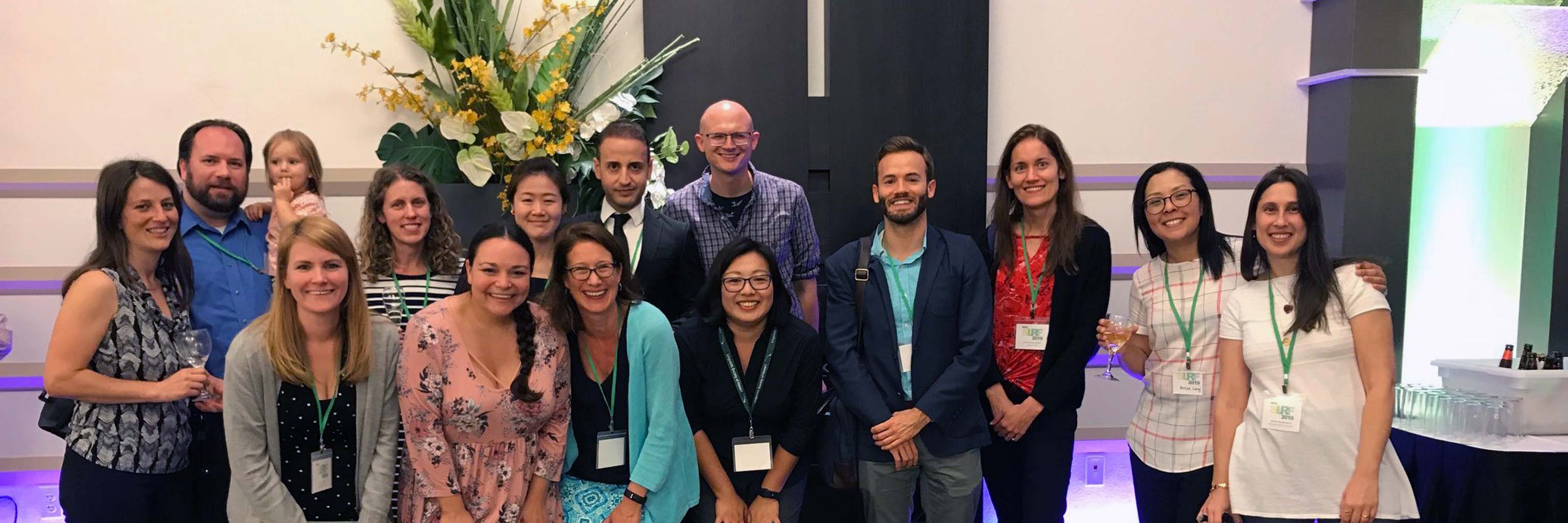Research in the Department of Second Languages at Indiana University addresses many aspects of multilingualism with linguistically sophisticated approaches:
Research
sound structure
morphology
syntax
semantics
pragmatics
pedagogy
assessment
Our students enjoy hands-on research experience in laboratories, research groups, and student-faculty research partnerships led by internationally recognized second language acquisition scholars. Department life also features reading groups, colloquia, professionalization workshops, and special events.



Research areas
Our faculty contribute to path-breaking research in the science of language acquisition and other areas of study.
- Acquisition of syntax and semantics (L1, L2, and L3 acquisition)
The Department of Second Language Studies has major strength in research on morphosyntax and semantics including acquisition and processing.
Sentence processing research with a focus on interpretive semantics is conducted by Laurent Dekydtspotter, in collaboration with students in the Second Language Acquisition and Sentence Processing Lab. This includes psycholinguistic and neurocognitive approaches to the problem of nonnative language processing.
Acquisitional research examining the acquisition of lexical semantics and morphosyntax is conducted by Rex Sprouse and David Stringer. Research on morphosyntax also includes well-known contributions to L3 acquisition modeling by Rex Sprouse, Mike Iverson, and David Stringer. This research regularly involves student-faculty research partnerships.
- Language revitalization
Research on endangered languages and language revitalization is conducted by Phil LeSourd, whose work focuses on Maliseet-Passamaquoddy, an Eastern Algonquian language spoken in New Brunswick (Maliseet) and Maine (Passamaquoddy). Research by David Stringer on biocultural diversity examines the links between language revitalization and biodiversity conservation.
- Second language assessment and testing
Research on language assessment in the department is led by Sun-Young-Shin, who examines issues of validity in language assessment tools and explores the extent to which various factors affecting test performance are relevant to and representative of the constructs being measured. The Language Assessment Lab (LAL) serves as the hub of faculty and student research in this area.
- Second language pedagogy
Faculty research in this area is conducted by Kathleen Bardovi-Harlig, Debra Friedman, and Yucel Yilmaz. Kathleen Bardovi-Harlig collaborates with students in the Pragmatics Research Group to determine instructional effects on L2 pragmatics. Yucel Yilmaz conducts experimental research investigating the relative effects of different types of instruction (e.g., corrective feedback) on second language development in collaboration with students in the Instructed SLA Lab. Debra Friedman’s work examines language socialization in educational conexts.
- Second language phonology
Faculty research in this area is led by Isabelle Darcy, who collaborates with students and other faculty in the Second Language Psycholinguistics Lab. The lab’s research program covers all domains of phonology and how they are acquired and represented in the bilingual mind. Rex Sprouse and Öner Özçelik pursue joint research that examines the role of universal phonological principles in nonnative acquisition.
- Second language pragmatics
Research on the development of second language discourse and pragmatics is conducted by Kathleen Bardovi-Harlig, and has inspired numerous collaborative projects by the Pragmatics Research Group investigating speech acts and formulaic sequences.
- Second language tense and aspect
Research on the second language development of tense-mood-aspect systems is led by Kathleen Bardovi-Harlig. Her current work expands previous research on tense-aspect to include the expression of the future and modality.
- Language socialization
Language socialization research in the department is led by Debra Friedman, who examines the linguistic contexts of novices participating in the valued practices of a community under the guidance of more experienced members. This research encompasses language socialization practices in educational settings in the Ukraine and in the United States.

 The College of Arts
The College of Arts